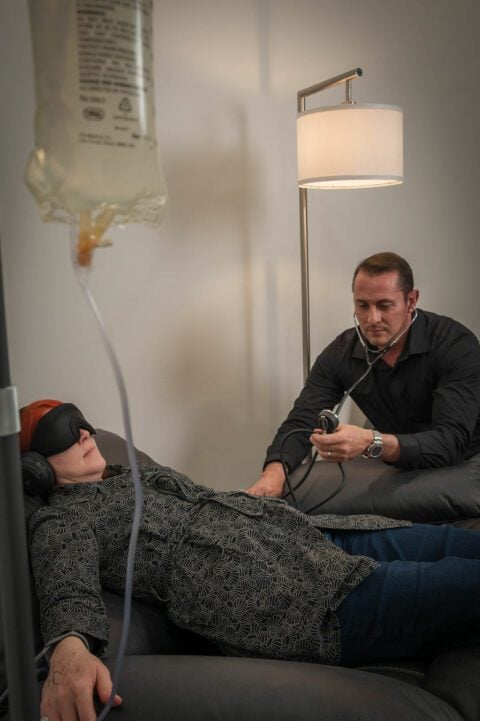Ketamine infusion therapy has emerged as a promising and innovative treatment option for individuals struggling with treatment-resistant depression, anxiety disorders, and other mental health conditions. This therapy involves the administration of a low-dose ketamine infusion under medical supervision, offering rapid relief and transformative outcomes for patients who have not responded to traditional therapies. Let's explore the science, benefits, and considerations associated with ketamine infusion therapy in mental health treatment.

Image source: Google
1. Mechanism of Action
Neurotransmitter Modulation: Ketamine acts on the brain's neurotransmitter systems, particularly the NMDA receptors, leading to enhanced synaptic plasticity, neurogenesis, and neural connectivity that contribute to mood regulation and emotional processing.
Biological Pathways: Ketamine induces the release of glutamate, dopamine, and other neurotransmitters, facilitating neurochemical balance, neural circuitry modulation, and neuroprotective effects that alleviate symptoms of depression and anxiety.
2. Treatment Efficacy
Rapid Relief: Ketamine infusion therapy offers rapid onset of therapeutic effects, with many patients experiencing significant improvement in symptoms within hours to days following the initial treatment sessions.
Sustained Benefits: Clinical studies and research trials have demonstrated the sustained benefits and long-term remission rates associated with ketamine infusion therapy, providing hope and renewed quality of life for individuals with treatment-resistant mental health conditions.
3. Safety and Monitoring
Medical Supervision: Ketamine infusion therapy is administered under strict medical supervision in a controlled clinical setting, ensuring patient safety, comfort, and adherence to established protocols, dosages, and monitoring procedures.
Individualized Care: Healthcare providers tailor treatment plans to each patient's unique needs, medical history, symptom severity, and treatment response, optimizing therapeutic outcomes and minimizing potential risks and side effects.
4. Considerations and Precautions
Contraindications: Ketamine infusion therapy may not be suitable for individuals with certain medical conditions, psychiatric comorbidities, substance use disorders, or contraindications that warrant careful evaluation, assessment, and consultation with healthcare providers prior to treatment initiation.
Potential Risks: While ketamine infusion therapy is generally safe and well-tolerated, it may be associated with side effects, adverse reactions, and potential risks, including dissociative experiences, transient increases in blood pressure, and psychotomimetic effects that require careful monitoring, management, and mitigation strategies.
In conclusion, ketamine infusion therapy represents a groundbreaking advancement in mental health treatment, offering a lifeline and renewed hope for individuals grappling with treatment-resistant depression, anxiety, and other debilitating psychiatric disorders. By understanding the science, benefits, considerations, and precautions associated with ketamine infusion therapy, healthcare providers, patients, and families can make informed decisions, explore innovative treatment options, and embark on a transformative journey towards mental health recovery, resilience, and well-being.